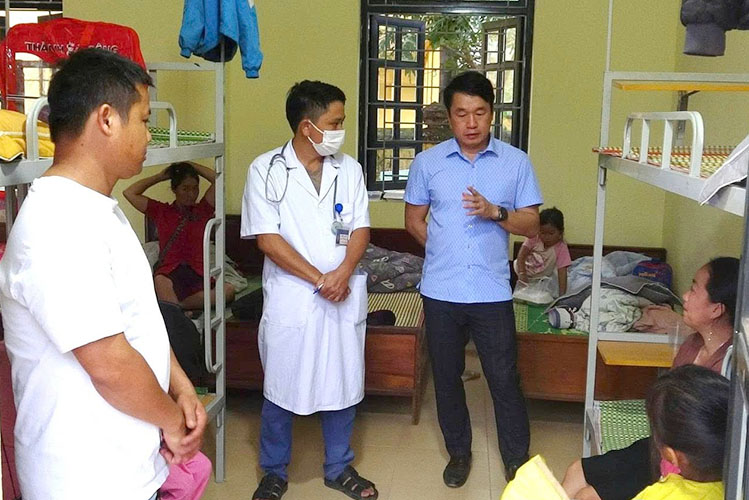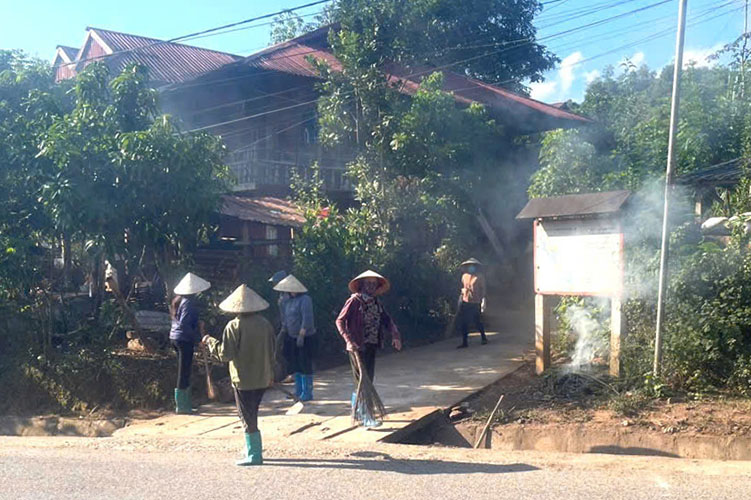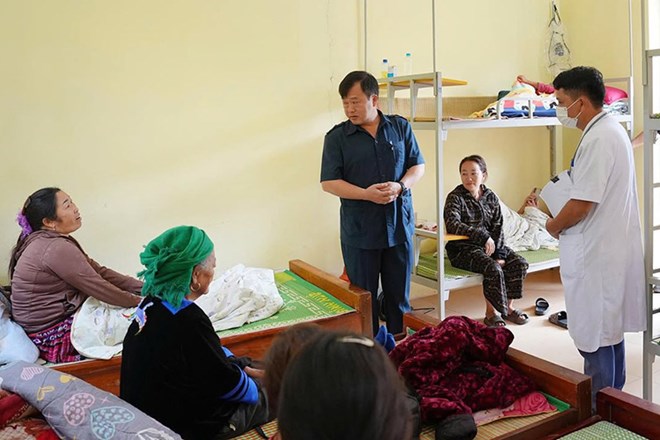Dozens of people are quarantined
On October 27, the leader of the People's Committee of Nam Ke commune, Dien Bien province, said that the situation of dysentery in the area is still complicated as many new cases were recorded.
Within just 24 hours (from 3:00 p.m. on October 25-26), the commune recorded 14 new cases, bringing the total number of cases to 147 cases (64 cases recovered, 1 death).

Previously (October 16), Nam Ke commune recorded a death from dysentery. The patient is G.A.C.S. (11 years old), 6th grade student at Nam Ke Secondary School for Ethnic Minorities.
According to the leader of Nam Ke Commune People's Committee, there are currently 82 cases being quarantined and treated. Of which, 7 cases are being treated at the hospital, 64 cases are quarantined at school, 11 cases are in Lam Detention Center.
In response to the development of the epidemic, the commune has increased 10 propaganda teams to each village and household so that people understand and implement disease prevention measures such as: Eat cooked, drink boiled water, wash your hands regularly with soap, keep the living environment hygienic...
Nam Ke Commune People's Committee has also organized disinfection and disinfection in areas with cases. Ensure adequate supplies, medicine, and human resources for treatment and epidemic prevention.

At the same time, closely coordinate with schools and health stations, instruct students, parents, and teachers to maintain hygiene and limit cross-infection.
The leader of the People's Committee of the commune added that this morning (October 27), Phieng Vai village has pioneered in public cleaning. The people in the village have actively participated in sweeping up village roads and alleys, collecting garbage, clearing forest dust, and creating a clean landscape.
Notes about dysentery
According to the Department of Health of Dien Bien province, dysentery is an acute intestinal infection caused by Shigella bacteria. The disease is transmitted through the digestive tract and can easily become an epidemic.

People with dysentery often have symptoms such as high fever 38-39 degrees Celsius, chills, headaches, fatigue, in children there may be seizures, loss of appetite, thirst, bitter taste, nausea or vomiting, accompanied by dysentery syndrome including: abdominal pain, sagging stools.
The stools are not melted and bloody, sometimes loose and bloody like meatballs. In severe cases, the body loses a lot of water, leading to cardiopulmonary stasis and death.
According to the leader of Dien Bien Department of Health, dysentery can be completely prevented if people strictly follow hygiene measures. In particular, it is necessary to ensure that the food is cooked, the water is boiled, and no fish sauce is used. Food needs to be stored carefully, avoiding small insects.

Washing your hands regularly with soap or hand sanitizer and clean water is a simple but extremely effective method in disease prevention.
Along with that, environmental sanitation and public water sources in the villages are protected. Do not release them haphazardly into the environment. Each family and community needs to have and use a hygienic fireplace.
"When there is a person with the disease in the family, it is necessary to isolate the patient, use personal belongings separately and disinfect toilets and objects in regular contact" - the leader of Dien Bien Department of Health added.











